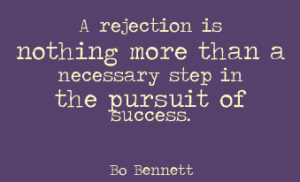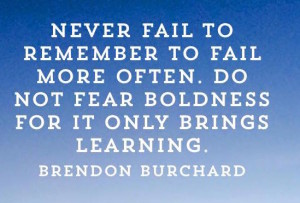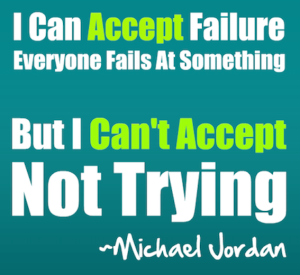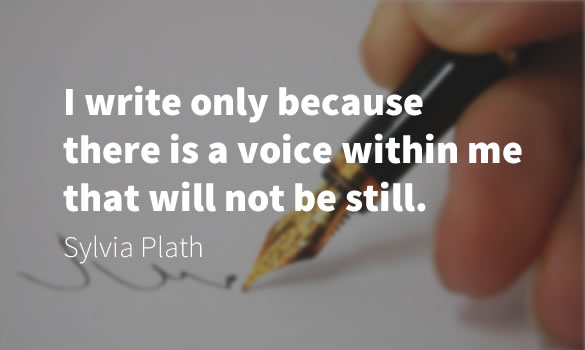You have to try if you have any dreams of succeeding. And when you try, you will fail, there will be rejection. But rejection/failure is a good thing. Turn that rejection into a motivator to try even harder, to get better. Rejection should fuel you to reach higher heights not to throw a pity party because I guarantee you while you’re having that pity party, there will always be someone else out there who is climbing that mountain, who is trying again and again and again.
At the desk where I do most of my writing, I have a drawer that has piles and piles of all sorts of rejection letters that I’ve received over the years. The letters come from agents, managers, producers, production companies, theatres and many, many writing competitions. There was a time we used to have to send letters/scripts out in the mail and wait to here back. Now with internet/emailing, it’s quick and easy and all the rejections come at the click of a button. Or they don’t come at all…the worst kind of rejection – the silent rejection.
There is no easy way in dealing with any kind of rejection, whether it’s in the form of a relationship  (family, friends, etc…) or in the form of the work you do. If you are an artist, the amount of rejection one experiences can be depleting and can leave you at times scratching your head wondering when that “big break” will come your way. The fact of the matter is if you’re thinking that one day you’re going to be an overnight success you will find rejection very hard to take. Almost all “big breaks” happen after years of hard work, years of trying, years of rejection and failure. Big breaks happen because you have put the work in, you have accepted (even embraced) the rejection and you willed yourself in the process to get better. Most actors are unemployed way more often than they are employed. The statistics of actors actually working is staggering. That is the reality of the business.
(family, friends, etc…) or in the form of the work you do. If you are an artist, the amount of rejection one experiences can be depleting and can leave you at times scratching your head wondering when that “big break” will come your way. The fact of the matter is if you’re thinking that one day you’re going to be an overnight success you will find rejection very hard to take. Almost all “big breaks” happen after years of hard work, years of trying, years of rejection and failure. Big breaks happen because you have put the work in, you have accepted (even embraced) the rejection and you willed yourself in the process to get better. Most actors are unemployed way more often than they are employed. The statistics of actors actually working is staggering. That is the reality of the business.
A writer often spends years refining a script while working on other scripts. Just as a side note, if you’re a writer out there, don’t spend your time just on  ONE script. Definitely work on it, get other opinions and keep re-writing, but don’t neglect new work. There is a point where you do need to move on – that doesn’t mean you abandon that one script, it just means you put it aside while you work on something new. To be continually rejected on the same script can be really discouraging.
ONE script. Definitely work on it, get other opinions and keep re-writing, but don’t neglect new work. There is a point where you do need to move on – that doesn’t mean you abandon that one script, it just means you put it aside while you work on something new. To be continually rejected on the same script can be really discouraging.
When I won the Kairos Prize, I rewrote Play Ball several times and through that period, I received several notes to make the script better. At each rejection I received from competitions, it motivated me to work on it even more. But along the way, I was also writing plays and working on new screenplays because in the end, the actual practice of writing is what makes you a better writer. So I tried to remain focused on Play Ball without being obsessed by it. This is what I meant when I said rejection forces you to keep trying no matter what.
For writers, I came across this article about rejection while I was preparing for this post: Dealing with Rejection
And I finally I end on this quote by writer Sylvia Plath which I can certainly relate to:


Speak Your Mind